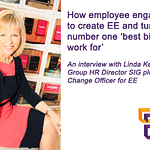Enforced fun, mandatory merriment – any attempt to inject a blast of jollity into the workplace can often strike fear into the hearts of the cheeriest of types. There you are, trying to be productive and motor through your to-do list, when suddenly you’re obliged to ctrl-alt-delete to go battle your colleagues at ping-pong or make small talk over a box of Mr Kipling’s finest.
Research, and general common sense suggests that happy colleagues are productive and high performing colleagues. And whether or not batting a plastic ball across a table and indulging in sugary treats are your bag, they’re generally thought of as being among the happiness-inducing things in life. Relaxing and socialising with your colleagues can create informal bonds, and help break down any perceived barriers between people regardless of their position in a business.
But how to strike a balance between something that colleagues enjoy, feel comfortable with and genuinely enhances their working experience, and something that feels contrived? It’s a tough one.
Some bad examples:
Workplace A went all-out when it came to raising cash for a well-known national children’s charity. A full day was given over to the cause, with meeting rooms cleared to make way for human table football and big prize bingo, fancy dress outweighing business dress. Later, a giant Lemsip raced a Duracell bunny in the car park as part of a supplier’s mascot race.
Good intentions at heart and of course, fantastic for the charity. But what was lacking was a clear top-down message that it was OK to down tools and get involved with this wonderland of fun.
For bewildered newcomers, whose experience of company culture so far was one of heads down, frowned-upon lunch breaks and leaving for home only after the boss, this day of paying no heed to deadlines seemed at total odds with usual practice. As a result, there was general confusion, and only the experienced or the brave took part.
Workplace B was faced with a serious reputational issue that sent ripples through the business and left the majority of the workforce feeling flat and lacking motivation. The senior management team reacted quickly. Out went an all-staff email inviting colleagues to take their pick from spa days, gym memberships, new trainers or anything below £100 that could be vaguely linked to health and fitness as part of a knee-jerk wellbeing initiative.
A nice idea on the face of it. But with no link to any kind of sustainable wellbeing strategy spa days were enjoyed, and gym memberships arranged. Colleagues returned to work with temporarily boosted before quickly returning to their disengaged state. All the out of the blue wellbeing effort offered was a sticking plaster to mask some much deeper issues.
These stories are perhaps extreme but illustrate some of the fundamentals that need to be addressed before trying to ramp up the office fun-o-meter:
Why are you doing this? How does inviting masseurs to the office connect to your business objectives? Is your staff survey highlighting some more entrenched problems that should be dealt with first?
If fun is definitely on the cards, then is the message consistent throughout the business? If they’re having cakes at site A, then there should be cakes at site B too.
Consider that everyone has a different interpretation of what represents “fun”. While some may merrily downward dog alongside colleagues in the office yoga class, others may struggle to think of anything more horrifying.
Finally, does it always need to be a grand gesture? Do you need to lay on an all-company summer BBQ when supplying a regular flow of tea bags and milk and fixing the office toasters would have more of an impact? Sometimes it’s the small things that make a big difference.
Written by:
Lindsay Narey, Internal Communications Executive, Metropolitan
Would you like to join our Virtual Content Team? Email sian@engageforsuccess.org to find out more!
Clown image courtesy of Phil_Bird at FreeDigitalPhotos.net





